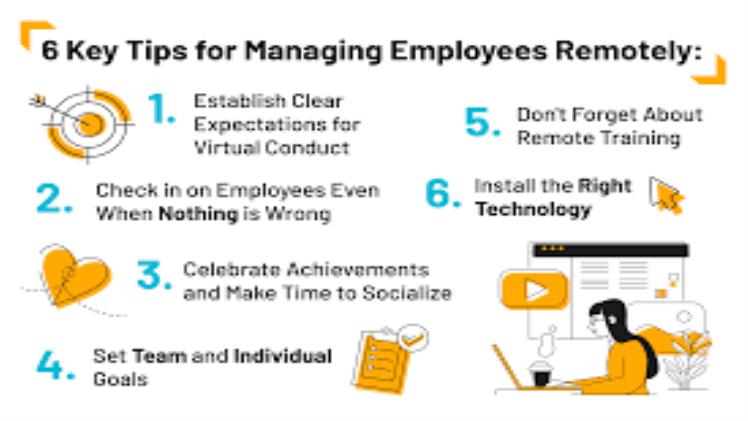Managing a Remote Team

Team leaders facing remote working have an extra set of challenges when their workforce doesn’t have access to traditional office spaces. To stay productive and healthy, managers must navigate these potential roadblocks effectively.
Misunderstandings tend to occur more frequently in virtual communication than face-to-face interactions, so it’s essential that all team members have access to an efficient method of communication. This could include video calls, written messaging, or some other method which makes it clear what each person wants from the conversation.
Setting expectations is one of the first tasks a remote manager should do. This includes creating regular meeting schedules, setting email turnaround times and ensuring everyone has access to well-documented procedures and processes for completing tasks and managing projects.
Documentation is essential for any manager, but especially so in a remote setting where employees may not have easy access to your physical workspace. Effective managers will invest time into creating handbook-first documentation – an organized set of rules and steps that all employees can follow to successfully finish tasks and projects.
Communication your goals and objectives clearly is a wise idea. These will be the deliverables that your team produces, so make sure they know exactly what you expect them to accomplish.
Establishing clear expectations will enable your team to stay focused on their task and avoid distractions that could slow them down. Furthermore, having these guidelines will give them assurance about how you manage remote management issues and resolve issues efficiently.
As the leader of a remote team, it’s your duty to offer constructive criticism and direction to your members in an encouraging atmosphere. This can be accomplished through weekly team meetings or one-on-one chats. If someone in your group is facing particular difficulties, make an effort to speak directly with them and address their worries directly.
When working from home, many individuals struggle to strike a balance between work and personal lives. This can be made more challenging by the lack of social interaction that remote workers often lack. To maintain a positive mental state, remote workers may seek out alternative forms of entertainment or distraction from their task at hand.
Establishing a sense of independence among your team members is another essential aspect of managing a remote workforce. Encourage them to take time away from their computers and do something enjoyable outside the office – whether this be something everyone enjoys together, such as going to a coffee shop. This could be done jointly so everyone feels included in the experience.
Training is another essential aspect of managing a remote team. Just like in-person teams, yours will require ongoing education and development to stay abreast of the latest technologies and best practices.
Encourage team members to utilize screen sharing tools and online training opportunities. Doing so will enable them to hone their skills and grow as a unit, leading to increased productivity overall.
